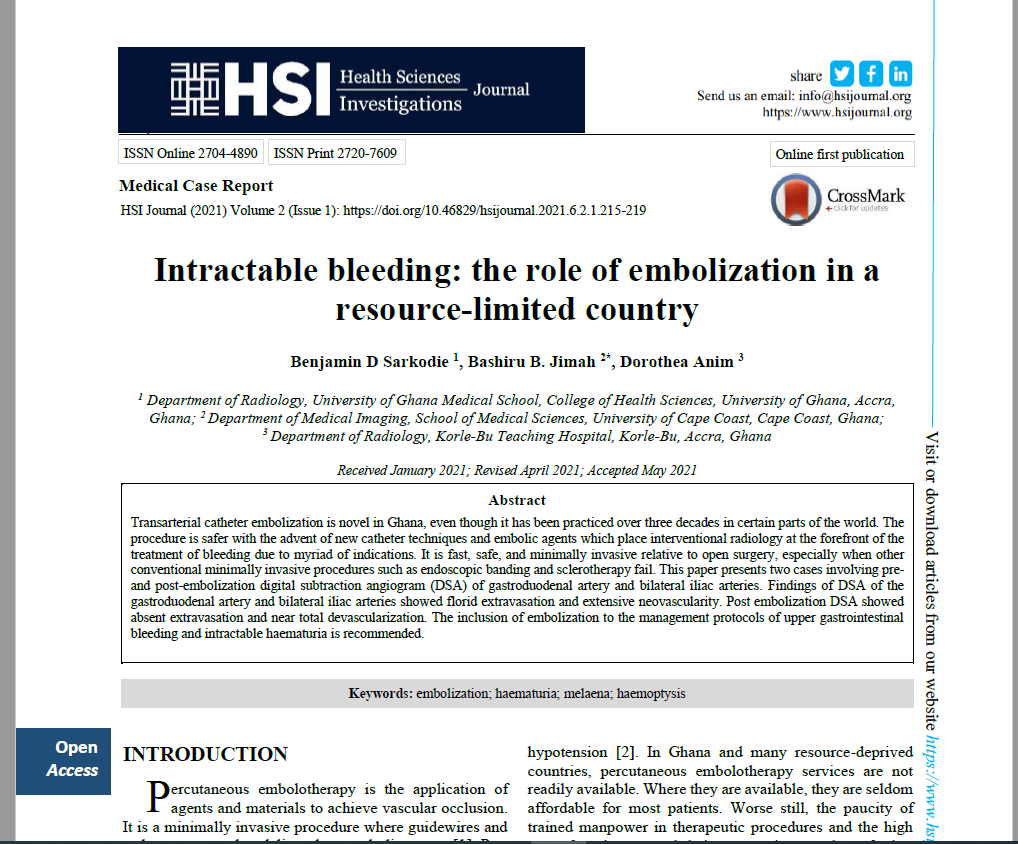Intractable bleeding; the role of embolization in a resource-limited country
Intractable bleeding
Abstract
Transarterial catheter embolization is novel in Ghana, even though it has been practiced over three decades certain parts of the world. The procedure is safer with the advent of new catheter techniques and embolic agents and thus placed interventional radiology at the forefront of the treatment of bleeding due to myriad of indications. It is fast, safe and minimally invasive relative to open surgery especially when other conventional minimally invasive procedures such as endoscopic banding and sclerotherapy fails. This paper presents two cases who underwent pre- and post-embolization digital subtraction angiogram (DSA) of gastroduodenal artery and bilateral iliac arteries respectively. Findings of pre-embolization digital subtraction angiogram (DSA) of the gastroduodenal artery and bilateral iliac arteries shows florid extravasation and extensive neovascularity. Post embolization DSA shows absent extravasation and near total devascularization. Recommend inclusion of embolization to the management protocols of upper gastrointestinal bleeding and intractable hematuria.


